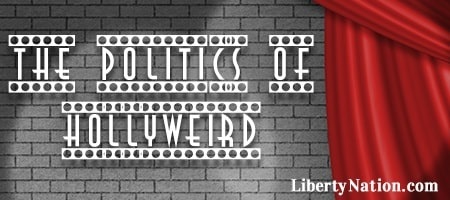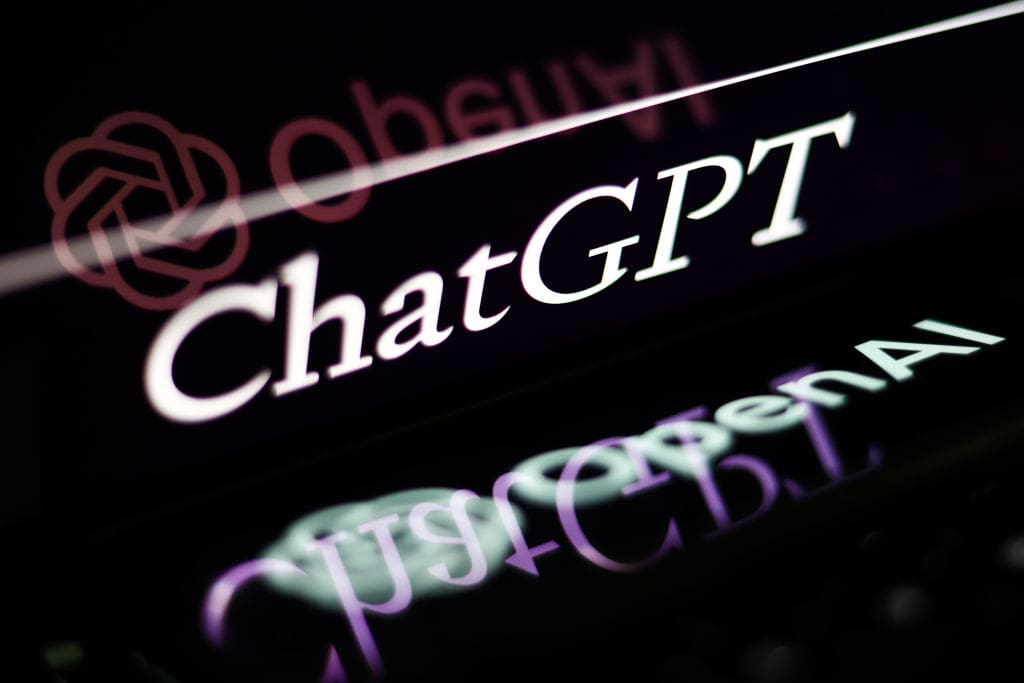Editor’s Note: Whether on screen or off, Hollywood can always be counted on to keep us entertained. This is especially true when it comes to politics. Liberty Nation’s HollyWeird column shines the spotlight on Tinseltown’s A-listers and their wild and wacky takes on today’s current events.
The show must go on, but what happens when the creators go on strike? The Writers Guild of America (WGA) authorized a writers strike on May 2 that resulted in more than 11,000 professionals walking out, effectively halting the production of movie, TV episodes, and late-night shows. Cancelled until further notice, Hollywood is at a standstill while executives try to hammer out a compromise. But what caused this action, and just how much influence will artificial intelligence (AI) play in the resolution?
Behind the Scenes of the Writers Strike
What is the main cause of most strikes? You got it – money. With streaming so popular, celebrities have been complaining that they aren’t getting their fair share of pay. Scarlett Johansson, for instance, sued The Walt Disney Co., claiming her Black Widow contract was breached because the movie was released too soon to Disney+ while it was still in theaters.
Now writers are closing their, laptops claiming the streaming business has left them in the dust. Contract negotiations with the Alliance of Motion Picture and Television Producers (AMPTP), which have been going on since March, recently stalled. Writers want to be fairly compensated for their work that goes onto streaming networks, but so far, AMPTP has not made an offer or compromise.
“The guild is seeking higher minimum pay, less thinly staffed writing rooms, shorter exclusive contracts and a reworking of residual pay – all conditions the WGA says have been diminished in the content boom driven by streaming,” Daily Mail explained. “The survival of our profession is at stake,” the guild said.
Although streaming services such as Netflix have created a lot more job opportunities for writers, WGA say they are making less money while working under strained conditions. “Showrunners on streaming series receive just 46% of the pay that showrunners on broadcast series receive,” WGA claimed, according to Daily Mail. “The guild is seeking more compensation on the front-end of deals. Many of the back-end payments writers have historically profited by – like syndication and international licensing – have been largely phased out by the onset of streaming.”
The AI Scare
Artificial intelligence is already being used in the industry to create futuristic backgrounds, make actors look much younger than they are, and even digitally insert entertainers who have passed away. Now, though, studios and production companies are considering using AI to write scripts, and that has writers both scared and insulted.
 Greg Brockman, the president and co-founder of ChatGPT maker OpenAI, suggested how AI could have changed the finale of Game of Thrones, which many fans bemoaned. “That is what entertainment will look like,” he said.
Greg Brockman, the president and co-founder of ChatGPT maker OpenAI, suggested how AI could have changed the finale of Game of Thrones, which many fans bemoaned. “That is what entertainment will look like,” he said.
Danny Strong, the creator of Dopesick and Empire, said: “AI is terrifying. Now, I’ve seen some of ChatGPT’s writing and as of now I’m not terrified because Chat is a terrible writer. But who knows? That could change.” Screenwriters suggest the AI could be used to create first drafts and writers hired to flesh out the scripts. However, screenplays could also be generated to write in the style of known writers such as Nora Ephron (When Harry Met Sally, Sleepless in Seattle) or Mario Francis Puzo (The Godfather).
So, how does this work with copyright issues? WGA defines a writer as a “person,” but will AI get credit for its work such as the creation of outlines, drafts, and scenes? Michael Winship, president of the WGA East as well as a news and documentary writer, told Fortune: “We’re not totally against AI. There are ways it can be useful. But too many people are using it against us and using it to create mediocrity. They’re also in violation of copyright. They’re also plagiarizing.”
Another question is how can artificial intelligence accurately capture human emotions? “Human creators are the foundation of the creative industries and we must ensure that they are respected and paid for their work,” the actors union argued. Alan Alda (M*A*S*H) recently tried to read through a scene from the iconic television series created by ChatGPT, and although it apparently wasn’t horrible, it didn’t have the comedic bent the show is famous for. Alda said:
“Why have a robot write a script and try to interpret human feelings when we already have studio executives who can do that?”
What the Writers Are Saying

(Photo by Jakub Porzycki/NurPhoto via Getty Images)
“Pencils down,” Christopher Cantwell, co-creator of Halt and Catch Fire, wrote on Twitter after the writers strike was announced. “Don’t even type in the document.”
Some A-list celebrities appeared at the picket lines to support their writers, including Natasha Lyonne (Orange Is the New Black), Clea DuVall (She’s All That, Girl, Interrupted), Justine Bateman (Family Ties, Desperate Housewives), John Cryer (Two and a Half Men), Robert Clark Gregg (The Avengers), and Rob Lowe (The Outsiders, The West Wing), who was there to support his son, John Owen Lowe. Lowe told TMZ that he was very proud of his son. “Without the writers we have nothing,” he said.
And, just for fun, here are some of the best picket signs:
“Writers Guild on Strike! Wrote ChatGPT This”
“I like your offer as much as you like an angry female lead.”
“I’m mad as hell and I’m not going to take it anymore! Was not written by a program.”
“This isn’t 1984.”
“You’re gonna be the villains in the limited series about this!”
“I told ChaptGPT to write a picket sign and it sucked.”
How long will this writers strike continue? Some predict months. The last one lasted from November 2007 to February 2008. During that strike, Daniel Craig said he was working with “the bare bones of a script” for the James Bond film Quantum of Solace. “There was a writers’ strike and there was nothing we could do,” the actor explained. “We couldn’t employ a writer to finish it. I say to myself, ‘never again,’ but who knows? There was me trying to rewrite scenes – and a writer I am not.”
For now, it’s re-run city as most late-night shows have had to cancel any productions. Saturday Night Live, for instance, relies solely on its writers for the scripts that are sometimes written just hours before the show airs. Movies, sitcoms, and pretty much anything that isn’t a reality show (although some suggest those are scripted too) or news will be on hold indefinitely until the guild and AMPTP can come to terms.
Tune in next time to see what else Tinseltown has planned.
All opinions expressed are those of the author and do not necessarily represent those of Liberty Nation.
Do you have an opinion about this article? We’d love to hear it! If you send your comments to [email protected], we might even publish your edited remarks in our new feature, LN Readers Speak Out. Remember to include the title of the article along with your name, city, and state.
Please respect our republishing guidelines. Republication permission does not equal site endorsement. Click here

